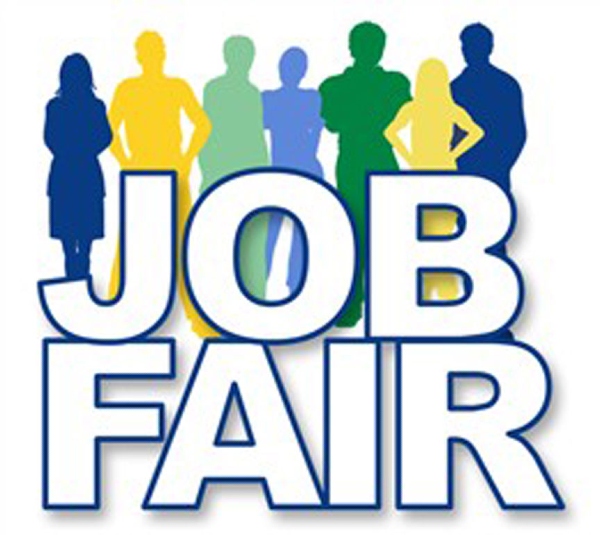Recruiting job fairs are similar to speed dating. Companies and job seekers meet at a predetermined time and location to see if they are a good fit. Plan your job fair recruitment strategy ahead of time to ensure that you effectively promote yourself and attract the best candidates.
Here is a planning guide from US-based recruitment process outsourcing services company (https://rpo.techfetch.com/) Techfetch RPO’s spokesperson Ms.Mariana Joseph:
-
First and foremost, determine your recruitment goal.
-
Consider your industry, current hiring needs, and the type of candidate you want to recruit when choosing or organizing a job fair that is worth your time, effort, and money.
-
Select the most appropriate event for your hiring needs and plan to attend to make the most of a job fair.
-
Start by making a few choices:
-
To help build your employer brand among candidates interested in your field, host an industry-specific job fair (e.g., tech or hospitality).
-
It’s best to attend or host a college job fair or career day if you’re hiring for entry-level positions or offering paid internships.
-
Attend veteran job fairs to meet potential candidates and their families.
-
Choose your team.
-
Choose members of your team who will best represent your company at this event. Consider:Human resource recruiters and personnel. They are required to network as part of their jobs.
-
They’re the best people to start conversations with potential employees, present your company in the best light, and manage administrative tasks (like gathering resumes or contact information.)
-
They can also help with interview scheduling.
-
Managers in charge of recruitment On-site screenings and interviews are a possibility. They can also explain the scope of responsibilities for any positions they are recruiting for and respond to questions from potential employees.
-
What should you do to get ready for a job fair?
-
Invest in promotional items.
-
Develop an eye-catching booth with banners and company photos in collaboration with external or internal designers.
-
In addition, in the following order:
-
A name tag should be worn by each team member.
-
Brochures containing information about your company
-
Contact information for recruiters is included on business cards.
-
If you want to surprise your guests, go ahead and do it. Pens and stickers bearing your company’s logo are nice, but they won’t help you stand out.
-
Rather, pick something that reflects the culture of your company.
-
-
We believe that hiring should be simple and straightforward for both employers and job seekers at Workable.
-
As a result, we hand out anti-stress coloring books to attendees at job fairs:
-
Preparing the Questionanrie
-
Because you will only have a limited amount of time with each job seeker, prepare your questions ahead of time.
-
Each role has its own set of questions. These will assist you in determining whether candidates meet the minimum requirements for your open positions (for example, “Do you have experience with X software?”).
-
The topic of one’s interests and career goals is discussed. These can be used to see if candidates are long-term compatible with your company. (For example, “What is your area of expertise?” and “What are your interests?”)
-
Concerns about your company’s operations. These questions (such as “How much do you know about our company?”) will help you identify candidates who are already familiar with your brand and want to join your team.
-
-
Publicize the event.
-
Make an announcement a few weeks before the job fair that your company is hiring and that you will be attending.
-
Use your social media accounts to disseminate the information. Candidates who are familiar with your brand or want to learn more about it will know where to go.
-
It’s worth noting that a closed event, such as a college career fair, cannot be attended by anyone.
-
You can, however, use social media to notify attendees of your location. Consider taking photographs to help you build your brand while you’re there.
On The Job Fair Day:
Arrive early on the day of the event to set up your booth. Bring laptops if possible so that candidates can look over your website and learn more about your mission and products.
Speak with as many people as possible who are looking for work. You’ll have a better chance of finding qualified applicants.
Interviews should be kept to a minimum amount of time. Long lines will deter potential candidates. Consider appointing an interview coordinator to your job fair team to ensure that conversations are structured and brief.
Taking notes during interviews is a good idea. At job fairs, it’s difficult to remember candidates unless you take quick notes as you speak with them.
Compile a list of candidate resumes and contact information. You could also send them to your careers page and say you met them at the XYZ job fair.
Candidate Follow Up:
-
Following the job fair, attendees should be contacted.
-
The next steps should be communicated to the candidates.
-
Indicate when qualified candidates can expect to hear from you (for example, “By the end of next week, we’ll contact you to schedule an in-person interview.”)
-
Tell candidates who aren’t a good fit for the open position right now that you will contact them when a suitable position becomes available.
Respond to the questions that the candidates have posed.
-
Job seekers are just as interested in learning about your company as you are in learning about theirs.
-
As a result, make sure you give them pertinent information (e.g. about your teams, open roles and future plans.)
Job fairs are just the beginning of your hiring process. As a result, don’t wait too long to hire qualified candidates. Candidates are more likely to remember you if you contact them as soon as possible. Read More

